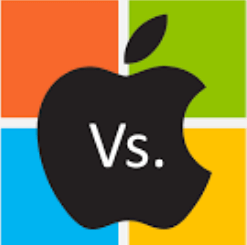Apple Sues to Win Trademarks Software’s recent lawsuit to secure trademark protection for its software raises critical questions about the intersection of intellectual property rights and brand identity in the technology sector. As the company seeks to define and protect its software trademarks, the implications of this legal battle extend beyond Apple’s immediate interests, potentially reshaping industry standards. The outcome could influence not only how tech companies approach branding but also the future landscape of software trademarks altogether. What remains to be seen is how this legal precedent might redefine competitive practices in an already complex marketplace.
Read also: Apple to Win Trademarks Augmentedreality Software
Overview of the Apple Sues to Win Trademarks Software Lawsuit
Apple Inc. has initiated legal proceedings to protect its trademark rights, a move that underscores the company’s commitment to safeguarding its intellectual property.
The lawsuit addresses critical trademark definitions that delineate the scope of protection afforded to brand identifiers.
Implications for Apple Inc
The implications of this trademark lawsuit for Apple Inc. are significant, reflecting both the company’s strategic priorities and the broader landscape of intellectual property protection in the tech industry.
This legal strategy underscores Apple’s commitment to brand protection, ensuring its innovations remain distinct and competitive.
Impact on the Tech Industry
Trademark lawsuits, such as the recent one initiated by Apple, have far-reaching repercussions for the technology sector as a whole.
These trademark disputes can establish new industry standards, influencing how companies approach branding and intellectual property.
As firms navigate the complexities of legal challenges, the outcome may redefine competitive dynamics, potentially stifling innovation or encouraging more robust protections within the tech ecosystem.

Future of Software Trademarks
As the technology sector grapples with the implications of recent trademark disputes, the future of software trademarks is poised for significant evolution.
Enhanced trademark registration processes could foster greater clarity, promoting a balance between protecting innovation and ensuring competition.
This shift is essential for encouraging software innovation, enabling developers to navigate legal landscapes while pursuing novel solutions that benefit the broader market.
Read also: Peter Noone Wife Age: Revealing the Age Difference Between Peter Noone and His Wife
Conclusion
The ongoing lawsuit filed by Apple Sues to Win Trademarks Software protection highlights the complexities of intellectual property in the technology sector. Should successful outcomes lead to clearer definitions of trademark boundaries, the implications may extend beyond Apple, influencing industry standards and practices. The critical question arises: what does the future hold for brand identity in a rapidly evolving digital landscape? As companies navigate these legal frameworks, the balance between innovation and protection of intellectual property remains paramount.

